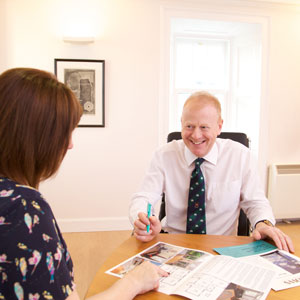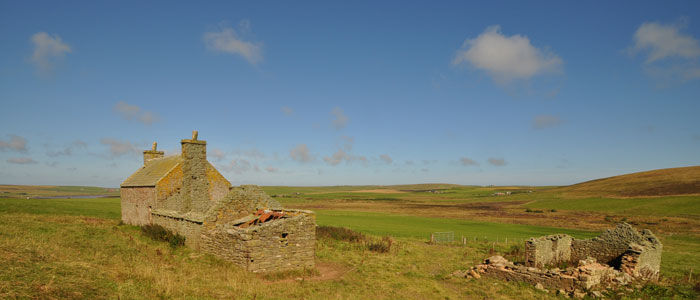
Do I need a Solicitor to buy or sell property in Scotland?
No - An individual can present their own deeds and applications to the Registers of Scotland. In practice, however, most people soon realise that conveyancing is not straightforward and they will entrust their Solicitor to attend to the work.
What does it cost to market a property?
In Scotland there is no fixed charge for property marketing. It is entirely a matter for agreement between the seller and the Solicitor/Estate Agent acting for them. In most cases sellers will have to incur the cost of obtaining a Home Report before they can put their property on the market.
What does it cost to sell a property?
Conveyancing costs are, again, a matter for negotiation as between the seller and their Solicitor. There are certain costs which will be incurred in most cases including the costs of obtaining Searches in the Land Registers and where appropriate the cost of registering a Discharge of any existing Standard Security (mortgage deed).
What should I expect to sell a house for?
Ultimately the price of any property is what changes hands between a willing purchaser and willing seller. A Home Report Valuation will often give purchasers and sellers some idea of what a realistic price might be but there is no hard and fast rule on this.
What is a Home Report and do I have to have one?
A Home Report is a pre-sale report on the condition and valuation of a property comprising three parts being seller’s questionnaire, energy performance certificate and valuation. Most residential property in Scotland marketed since November 2008 requires a Home Report to be provided before a property can be marketed. There are, however, a few limited exceptions e.g. mixed residential/commercial properties.
 I want to submit an offer for a property – does this have to be done through a Solicitor?
I want to submit an offer for a property – does this have to be done through a Solicitor?
No although by using a Solicitor you can ensure that the property legal formalities are met and an offer prepared by a Solicitor may in some instances show that a purchaser is seriously interested in a property.
The property I’m interested in has a closing date set – what does this mean?
Where there may be more than one interested party in a particular property a closing date is effectively a blind bidding situation intended to allow the highest offer at the closing date to secure the property.
What are ‘missives’?
Missives are the formal letters which make up the binding legal contract for purchase and sale of property in Scotland. Missives can either run directly between purchaser and seller or can be letters passing between respective Solicitors.
Is it possible to sell my old house and move into my new home on the same date?
Yes although your Solicitor will guide you through what can sometimes be a complicated exercise.
What is Land and Buildings Transaction Tax and how do I pay it?
Land and Buildings Transaction Tax (LBTT) is a tax levied in Scotland on a range of property transactions. Its English equivalent is Stamp Duty. LBTT is usually paid by the incoming purchaser or tenant. Different taxation rates apply and your Solicitor can advise on what rate should apply in any given transaction.
My Solicitor says I have to pay ‘registration dues’, what are these?
These are fees payable to the Registers of Scotland to allow titles to be registered. These dues are in addition to Land and Buildings Transaction Tax.
If I move to a new house can I transfer my mortgage to the new property?
Strictly speaking an entirely new mortgage deed will require to be registered over the new property and the old deed will require to be discharged. In practice many lenders will allow “porting” of mortgage accounts when somebody moves house.
I own a large area of ground which might be suitable for development – how do I find out what I can build?
You may want to check with your local Planning Authority to see whether there are any planning designations which might restrict development. In addition there can sometimes be restrictions within property titles on development and you may want to ask your Solicitor to check your titles for this purpose.


